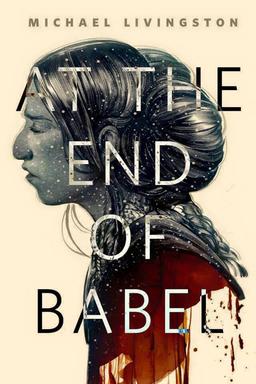Michael Livingston’s “At the End of Babel” Live at Tor.com
 Michael Livingston’s short story “At the End of Babel” was published today at Tor.com.
Michael Livingston’s short story “At the End of Babel” was published today at Tor.com.
At Michael’s website, he talks a little about the origin of the story, and his own history as a writer, including his first fiction sale, “The Hand That Binds,” published in Black Gate 9.
My path to publishing fiction began in 2003. It was then that a friend (hi, Fred!) suggested I submit some of the stories I’d been kicking around. So I sent out two. One was a retelling of Beowulf that was quickly picked up by John O’Neill at the very awesome (and sorely missed) Black Gate magazine…
On one memorable outing we were able to travel to Acoma Pueblo during one of the traditional festivals. The chance to see Acoma in person, and to see it somewhat behind the scenes due to my mother’s access, was priceless. It was, for lack of a better term, a mystical experience. Strong as those teenage impressions had been, however, I knew I needed a bit more research to get [“At the End of Babel”] right. I needed language.
The entire tale… hinges on language and the power it has to define culture. More precisely said, it depends on the fact that this power has been turned into a way of attacking culture by denying people the right to speak their language. This was the point, but it wasn’t a very good one if I didn’t actually use the language of the pueblo.
I don’t know Keresan, but deep down in the bowels of the library at the University of Rochester I found a small and dust-covered grammar for it. I did my best to absorb the language, to feel it, and then to sprinkle it into my text, to make it real and make it right.
Read the complete story for free at Tor.com here. Art by Greg Ruth.
We last covered Tor.com with Niall Alexander’s salute to Solaris Books.
[…] […]
Y’know, ancestors of mine spoke Gaelic, Lallans (the lowland Scots language closely related to but distinct from English), and Beothuk (which is extinct).
I don’t, and am none the worse for it. In fact, the overwhelming majority of languages ever spoken by human beings are extinct.
The point being that languages come and go, and this is inevitable and not particularly tragic. Most Americans’ ancestors spoke some non-English language.
People learn the languages because they’re useful in the context they find themselves. Most don’t learn any more languages than they have to, because it’s too much like hard work.
In Ye Olde Days, a patois spoken in a few villages was useful. Then national languages became essential as the interaction sphere increased and people had to deal with those from further away.
Now even fairly large national languages are starting to look fairly punky as the mega-languages supplant them.
Ditto “cultures”. They come and go and compete and hybridize and mingle and change, none of them is “pure”, none is eternal, all eventually cease to exist or turn into something unrecognizably different.
Your culture is not like your eye color. It’s more like your clothes.
People change clothes — or mix and match — as convenience and opportunity dictate. Memes compete and spread, and people latch on to them for reasons of practicality or fashion.
> People change clothes — or mix and match — as convenience and opportunity dictate. Memes compete and spread, and people latch
> on to them for reasons of practicality or fashion.
I certainly won’t argue with that. But I’m one of those that believes that culture has profound value, far beyond its presumable disposable nature.
The day that English dies as a language, and our civilization loses the ability to read Shakespeare and Bradbury and Faulkner (not to mention hear the Beatles and The Who and Pink Floyd) in their original tongue, because future generations find it more convenient to learn just one language, I believe something very profound wlll be lost.
Yes, retaining culture is inconvenient, and many people don’t see the value. But some of us do.
[…] Hand That Binds (BG 9),” a fabulous retelling of the legend of Beowulf. His story “At the End of Babel” (Tor.com) is another fine example. His first novel, on sale next month from Tor Books, reveals […]